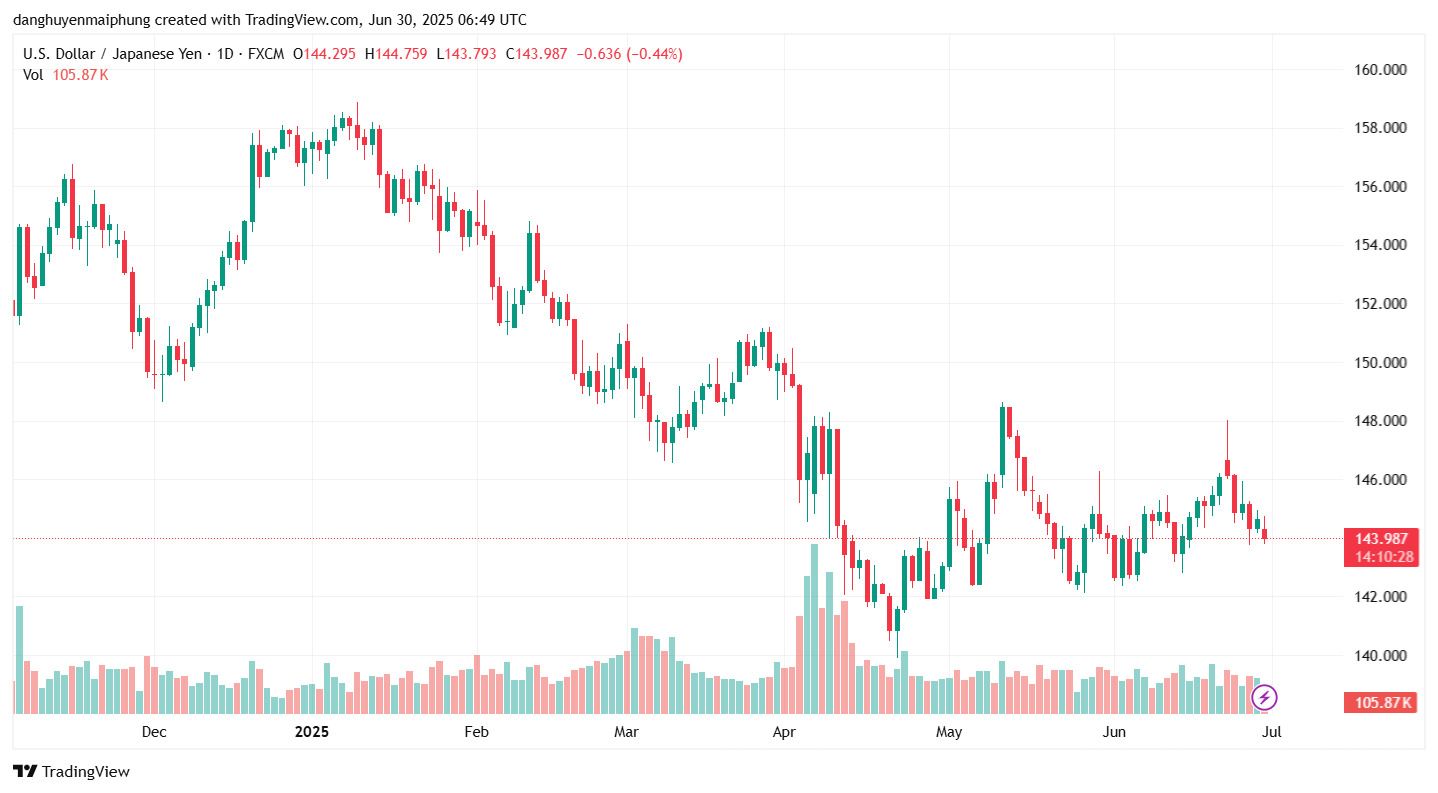Yen exchange rate today
According to Lao Dong, on June 30, the Japanese Yen (JPY) continued to increase compared to the US Yen, when the USD/JPY exchange rate decreased to around 143.85, losing 0.53% on the day.

This development comes as the USD is under strong selling pressure as investors increasingly believe in the possibility of the US Federal Reserve (Fed) cutting interest rates in the coming months.
Yen expected to continue to increase
According to the CME FedWatch tool, the market is currently pricing in a nearly 92.4% chance of a 0.25 percentage point cut at the September meeting, up sharply from 70% a week ago. Expectations of an early Fed rate cut have weakened the US dollar, creating conditions for the Yen to appreciate as investors seek a safe haven amid uncertainty over the global economic outlook.
Regarding economic data, a report from the US Bureau of Economic Analysis released last weekend showed that the personal consumption expenditure (PCE) price index in May increased by 2.3% over the same period, slightly above the 2.2% of April (adjusted from 2.1%). The core PCE index, which excludes food and energy, also rose 2.7%, up from last month's 2.6%, in line with market expectations. However, even a slight increase in inflation is still not enough to prevent the Fed from loosening monetary policy as labor market data is weakening.
According to FXStreet, the Yen is also supported as the US and China move closer to a tariff deal, boosting cautious sentiment and the need to hold the Yen as a safe-haven asset. However, instability still exists when US President Donald Trump suddenly ends trade negotiations with Canada, increasing risks in the outlook for global trade.
On the other hand, the Bank of Japan (BoJ) is still cautious about raising interest rates, but the increase of the Yen is still maintained thanks to weaker safe-haven capital and the USD. The market is now waiting for the second quarter Tankan survey released by the BoJ on Tuesday, to find more signals about the economic prospects and monetary policy of Japan, thereby continuing to support the Yen in the short term.
With these factors, the Yen is expected to continue to benefit as investors adjust their position in the face of the Fed's interest rate signals and global market fluctuations.











